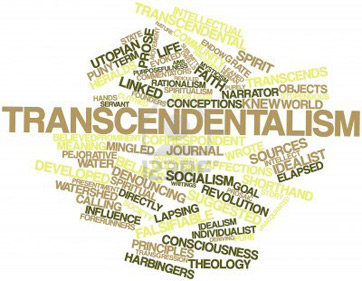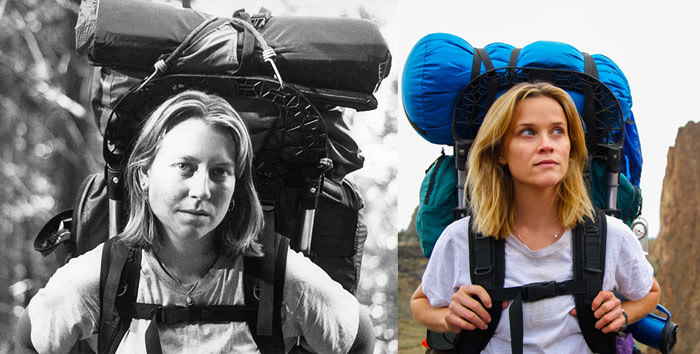Welcome to my blog,
This blog is part of our study. This Thinking activity is based on Transcendentalism was assigned by Megha ma'am Department of English MKBU. In this task, we have to answer any one of this 1) Transcendentalism is an American Philosophy that influenced American Literature at length. Can you find any Indian/Regional literature or Philosophy that came up with such similar thoughts? OR 2) Apply transcendentalism in any movie, novel, poem, or song, and write your views on that.
What is Transcendentalism?
Central to Transcendentalist philosophy was the idea of individualism, the belief that each person has their own unique path to understanding the world and their place in it. The movement was heavily influenced by the thoughts of European Romanticism, which celebrated the power of the imagination and emphasized emotion over reason. Transcendentalism had a major impact on American literature, particularly through the works of writers such as Ralph Waldo Emerson, Henry David Thoreau, and Margaret Fuller. It also had a significant influence on religious, political, and educational thought in the United States and beyond.
2) Apply transcendentalism in any movie, novel, poem, or song, and write your views on that.
Wild (2014):
Directed by - Jean-Marc Vallée
Based on - Wild: From Lost to Found on the Pacific Crest Trail by Cheryl Strayed
This is the main character of the movie.
Reese Witherspoon - Cheryl Strayed
"Wild" is a 2014 movie directed by Jean-Marc Vallée that has been said to have themes of Transcendentalism. The film is based on the memoir "Wild: From Lost to Found on the Pacific Crest Trail" by Cheryl Strayed and stars Reese Witherspoon as Strayed.
In the movie, Strayed embarks on a solo hike along the Pacific Crest Trail as a way of coping with the death of her mother and the unraveling of her personal life. The film portrays Strayed's journey as a quest for self-discovery and a reconnection with nature. Through her experiences, "Wild" explores Transcendentalist themes of individualism, self-reliance, and the transformative power of nature.
"Wild" is a movie that can be connected to Transcendentalism in several ways:
Individualism: The main character, Cheryl Strayed, embarks on a solo hike along the Pacific Crest Trail as a way of finding herself and healing from personal tragedy. This emphasis on individualism aligns with the Transcendentalist belief in the power of the individual to shape their own life and find meaning through personal experience.
Nature: The film portrays nature as a source of healing and spiritual renewal. Strayed's journey through the wilderness reflects the Transcendentalist idea that the natural world is a source of divine inspiration and that a connection with nature can bring individuals closer to the truth.
We can find many natural elements in the trailer of this movie.
Self-Reliance: Throughout her journey, Strayed relies on herself and her own inner strength to overcome obstacles and find her way. This emphasis on self-reliance aligns with the Transcendentalist ideal that individuals should be autonomous and self-sufficient.
Personal Transformation: The film portrays Strayed's journey as a transformative experience that leads to self-discovery and a deeper understanding of herself and her place in the world. This mirrors the Transcendentalist idea that individuals have the potential to evolve and grow through personal experience and self-reflection.
"Wild" can be seen as a modern interpretation of Transcendentalist ideas about the power of individualism, nature, self-reliance, and personal transformation to bring individuals closer to truth and meaning in life.
"I am bound to face myself, who I am, and what I've done."
This line spoken by the main character, Cheryl Strayed, highlights the Transcendentalist belief in the importance of self-reflection and personal introspection as a means of finding truth and meaning in life
"The world is big, it's full of wonder, and it will find a way to keep going without you."
This line speaks to the Transcendentalist idea of the individual's place in the larger, indifferent universe, and the idea that individuals should strive to live in harmony with nature and the greater good.
End of the Movie
The end of the movie "Wild" shows Cheryl Strayed reaching the end of her journey along the Pacific Crest Trail. After months of hiking, she has come to terms with the loss of her mother and the unraveling of her personal life, and she has found a sense of peace and renewal.
In the final scene, Strayed reflects on her journey and the lessons she has learned along the way. She feels a sense of accomplishment and a deeper connection to herself and the world around her. The film ends with Strayed walking away from the trail, ready to return to the world with a newfound sense of purpose and understanding.
Into the Wild (2007)
Directed by - Sean Penn
Based on - Into the Wild by Jon Krakauer
The main character of the movie...
Emile Hirsch as Chris McCandless a.k.a. Alexander Supertramp
The movie "Into the Wild" (2007) can be connected to Transcendentalism in several ways. Here are some specific examples:
Individualism: One of the central themes of Transcendentalism is the importance of individualism and self-reliance. In the movie, Christopher McCandless sets out on a journey of self-discovery, rejecting societal norms and conventions in favor of his own personal experiences. He believes in following his own instincts and pursuing his own truth, which aligns with Transcendentalist ideals.
Nature: Another important aspect of Transcendentalism is the belief in the transformative power of nature. In the movie, McCandless travels into the Alaskan wilderness, where he experiences the beauty and majesty of nature. He finds solace in nature and comes to see it as a source of spiritual renewal, which aligns with the Transcendentalist view of nature as a means of gaining greater understanding and wisdom.
Personal Experience: Transcendentalists believe that personal experience is the most important way of gaining knowledge and understanding. In the movie, McCandless sets out on his journey to gain a deeper understanding of himself and the world. Through his experiences, he learns about himself, the world, and the meaning of life, which aligns with Transcendentalist ideals.
The Search for Truth and Meaning: Transcendentalists believe that truth and meaning can only be found through personal experience and reflection. In the movie, McCandless sets out on his journey in search of truth and meaning, and through his experiences, he comes to a deeper understanding of himself and the world.
"The joy of life comes from our encounters with new experiences, and hence there is no greater joy than to have an endlessly changing horizon, for each day to have a new and different sun."
This quote from the movie speaks to the idea of personal experience and exploration as a means of gaining knowledge and understanding. The idea that change and new experiences bring joy is a central tenet of Transcendentalism.
The end of the movie shows his diary entries being discovered by a moose hunter, and it is revealed that McCandless died of starvation. Despite his tragic end, the movie ends on a hopeful note, as it shows the impact that McCandless had on those who knew him and those who discovered his diary. Through his journey and experiences, McCandless found a deeper understanding of himself and the world, and he inspired others to pursue their own truth and find their own meaning in life.
Many other movies which are also related to Transcendentalism
- "Into the Wild" (2007)
- "Dead Poet's Society" (1989)
- "A Walk in the Woods" (2015)
- "The Soloist" (2009)
- "The Edge of the World" (1937)
- "The Secret Life of Walter Mitty" (2013)
- "Cast Away" (2000)







No comments:
Post a Comment